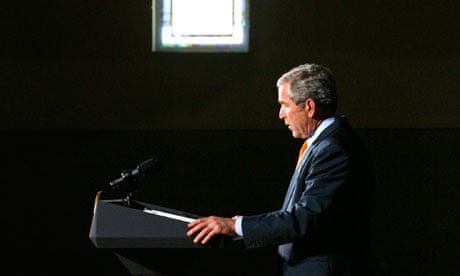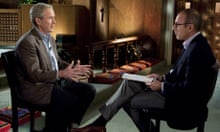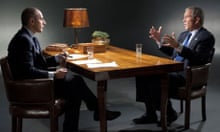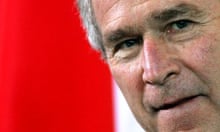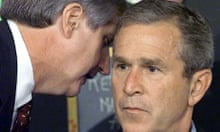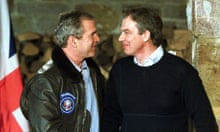Bush has been called a lot of things by liberals, rarely complimentary. But his policy on Aids in the developing world has been widely hailed for saving millions of lives.
Bush describes in almost evangelical terms the $15bn President's Emergency Plan for Aids Relief (Pepfar) which distributed antiretroviral drugs to keep people with HIV alive. "I hoped it would serve as a medical version of the Marshall Plan," he writes.
He says he was inspired by a visit to Gambia when his father was president. He was struck by the lack of infrastructure including its dilapidated national stadium. "I remember thinking that high school stadiums in West Texas were a lot more modern than Gambia's showcase," he writes.
Years later Bush says he wanted to rethink how aid was delivered to get away from what he regarded as traditional paternalism of development aid. His soon to be national security advisor, Condoleezza Rice, was telling him Aids in Africa was a humanitarian disaster and a security issue for the US. "I decided to make confronting the scourge of Aids in Africa a key element of my foreign policy," he writes. But he would avoid the UN as "too cumbersome and inefficient".
"I couldn't stand the idea of innocent people dying while the international community delayed. I decided it was time for America to launch a global Aids initiative of our own. We would control the funds. We would move fast. And we would insist on results," he writes.
At the time it was estimated that 4 million people in Africa were HIV-positive but fewer than 50,000 were receiving antiretroviral drugs. By the end of Bush's presidency, about 2 million people were receiving the medicines via his initiative. "Pepfar would include one additional element: caring for victims of Aids, especially orphans. It broke my heart 14 million children had lost parents to Aids. It also worried me. A generation of rootless, desperate young people would be vulnerable to recruitment by extremists".
The former president became something of an evangelist for the cause, telling Thabo Mbeki, South Africa's notoriously Aids-sceptical president, "to confront the disease openly" and visiting "beaming" Africans benefiting from the American-bought drugs.
The programme has been criticised over the involvement of religious groups in delivering care and in abstinence education. Bush says: "Critics said I started Pepfar to appease the religious right or divert attention from Iraq. Preposterous. I proposed the Aids initiative to save lives. Mike Gerson, my chief speechwriter and trusted adviser, put it best in a November 2002 meeting. "If we can do this and we don't," he said, " it will be a source of shame".
